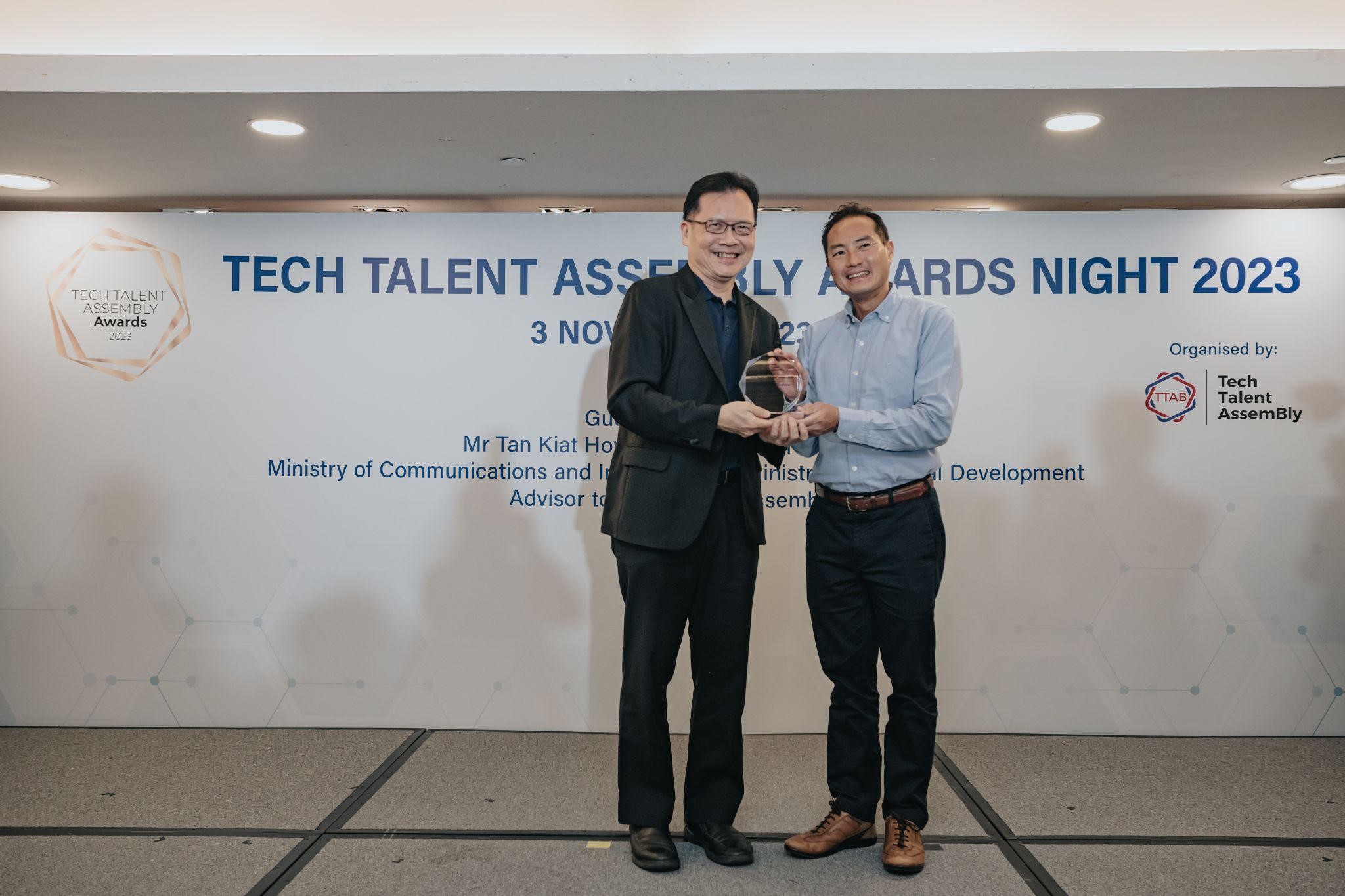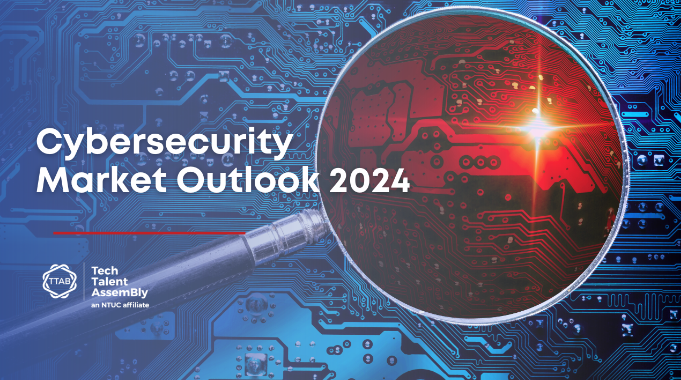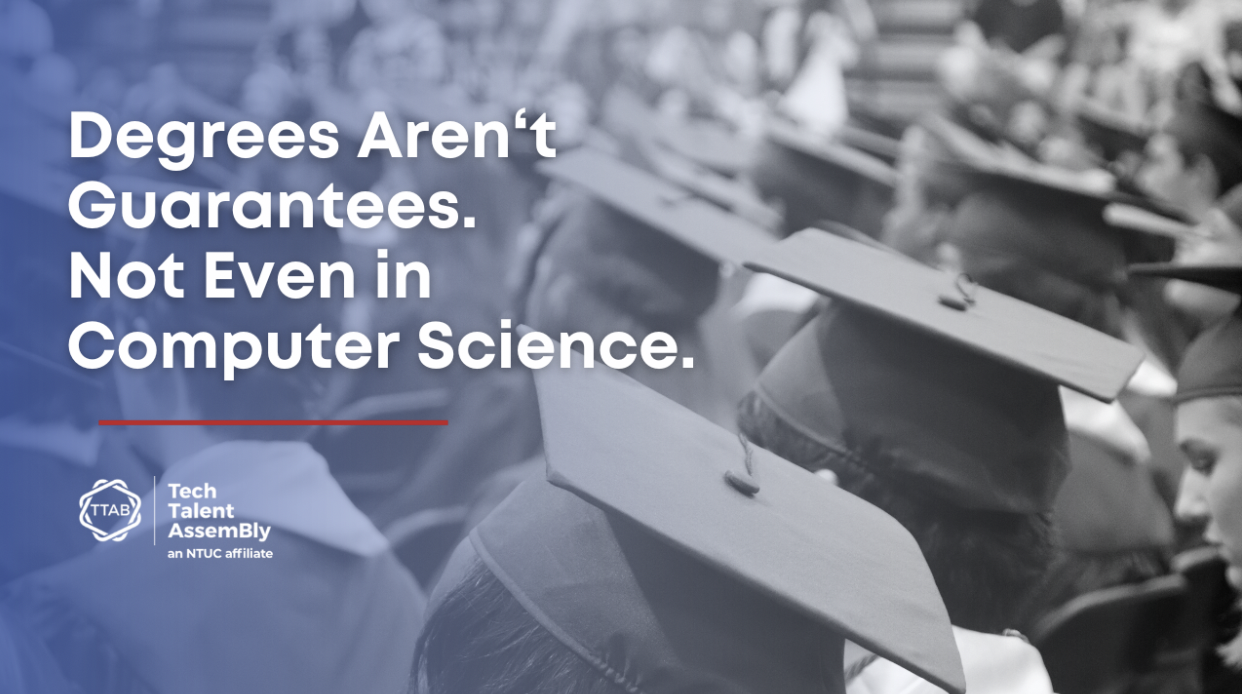Tips and Courses for a Successful Mid Career Switch into Tech
The tech industry and its high entry barriers can be daunting to outsiders
Upskilling Courses That Simplify Tech Mid Career Switches for Older Workers
The tech industry and its high entry barriers can be daunting to outsiders, who fear being overtaken by tomorrow’s faster, more efficient technology even as they seek to keep up with the most in-demand skills of today’s market. For older workers, that fear is even more pronounced. According to a Randstad survey, 31% of generation X workers in Singapore (aged between 41 and 57 as of 2022) grapple with fears of job loss. While understandable, many of those fears aren’t necessarily grounded in reality. In fact, older workers can take advantage of their experience and maturity to get ahead of the tech upskilling curve. Let us show you how.
Unemployment rates among older workers in Singapore
To be sure, age is a factor when it comes to unemployment and compensation in the workplace.
According to The Business Times, unemployment rates for older workers stopped improving in the first quarter of 2022. Data published by the Ministry of Manpower further corroborates this, showing that salaries begin to decline after the age of 45 years old, a trend that only grows more pronounced with age.
Ageism bias against older workers
These unfavourable statistics can be traced back to ageist assumptions against older workers, who are often painted with the same ‘traditionalist’ or ‘inflexible’ brushstrokes before they’re even given a chance to prove themselves. Unsurprisingly, this has caused many older folk to internalise a mindset of inferiority and even shy away from picking up new skills.
Dispelling myths surrounding mid career switching and upskilling among older workers
They say you can’t teach an old dog new tricks, but dogs live in the moment and are always eager to try out new things. Regardless of age, anyone can upskill with the right mindset and resources.
Myth #1: Older workers can’t use newer technology
While hiring managers often discount older workers and their ability to keep up with new tech, Associate Professor Terence Ho from the Lee Kuan Yew School of Public Policy suggests that companies can actually leverage their rich experience to use AI more effectively.
This makes sense when you consider that AI is only as good as the information it’s provided. An experienced individual with intricate knowledge of past case studies and datasets can better instruct AI while also inspecting its outputs for biases, errors, and knowledge gaps.
Furthermore, a keen understanding of the work industry means that older workers have a better grasp of the firm’s goals and the challenges within, allowing them to better at identifying patterns and making connections that AI systems may overlook. No matter how quickly younger workers learn, such experience to evaluate quality of work accurately is something that simply cannot be replaced.
Myth #2: Ability to learn decreases with age
According to a study conducted at the University of North Carolina, adults over the age of 60 performed poorer on memory tests not because their retention power was poorer, but because they weren’t as confident, often cross-referencing despite already knowing the answer. In another study from the Oxford Academic, older adults between 58 and 86 years old displayed the ability to learn three new skills over the course of three months, performing similarly to adults aged 50 years and younger.
How to transition into tech as an older worker
Older workers should therefore not fear transitioning into tech from a non-tech industry. In fact, they’re oftentimes at an advantage thanks to their wide range of transferable skills. For example, a seasoned journalist can in fact be suitable for data analyst positions that require similar skills such as data gathering, storytelling, and information breakdown.
Such examples are not just hypotheticals. In fact, the former manager of GovTech’s Communications and Marketing group tapped into his prior communication experience in copywriting, user interviews, and brainstorming to land a role as a user experience (UX) designer within the Government Digital Services Division.
Tech upskilling courses for older workers
There are also plenty of online and offline resources designed to help older workers succeed in tech. Attending such courses with like-minded individuals can motivate you through your journey in upskilling. Plus, certifying the tech skills you learn along the way is a great way to highlight to hiring managers your upskilling journey and your determination to be a lifelong learner.
Workforce Singapore (WSG)
Workforce Singapore’s SGUnited Mid-Career Pathways Programme is designed to help mid-career individuals aged 40 and above gain the relevant skills and experience needed to switch careers. With an attachment that lasts between four to six months, individuals also have the chance to widen their professional networks with their host organisations.
Workforce Singapore also offers programs such as the Career Conversion Programmes (CCP) for Individuals, where industry-recognized training is provided for mid-career individuals to move into new occupations or sectors. These individuals also get a salary and course fee support of up to 90%. However, this program is only open to Singaporean citizens, and they will need to apply to be considered for the program.
NTUC’s Employment and Employability Institute (e2i)
The Employment and Employability Institute offers foundational 1-day courses for workers. The course not only offers a blend of face-to-face, hands-on, and blended learning, but workers can also earn certificates as visual recognition of the skills they’ve learned. One such course is the Worker 4.0 Digital Readiness Certificate, which has three tracks workers can develop themselves on—technical; emerging technologies; and coding and software.
SkillsFuture Mid-Career Enhanced Subsidy
There’s no better time to start using your SkillsFuture credits if you haven’t already done so, especially since those over 40 years old can get funding support of up to 90% through the SkillsFuture Mid-career Enhanced Subsidy. For those who may struggle more with the knicks and knacks of technology, GetSetUp is a great place to start for it is tailored specifically for the older community. If you are more confident in your tech skills, you can explore online course platforms such as Udemy, Coursera, and Skillshare. Finally, YouTube is always a handy free resource to search for videos that fit any of your specific tech inquiries.
Bust ageist myths with tech upskilling
As Mark Twain once said, “Age is an issue of mind over matter. If you don't mind, it doesn't matter.” Instead of worrying about the naysayers, meet like-minded individuals at our networking events, upskilling workshops, and job fairs by following us on LinkedIn and Facebook or rubbing shoulders with industry professionals at the TTAB Career Conversation.



